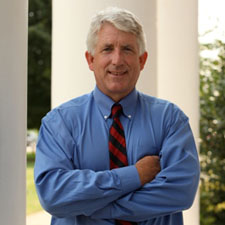
While it is established that any oil and gas extraction company must comply with local land use ordinances, how far a locality could go in its restriction of drilling operations has been the subject of uncertainty for elected officials.
The opinion of the Attorney General, which provides a formal interpretation of existing law but does not create or change the law, says that localities can prohibit fracking through zoning ordinances or restrict fracking through reasonable zoning ordinances that do not conflict with state statutes or regulations. As examples, the opinion confirms that restrictions on the location and siting of oil and gas wells are allowed.
“The Attorney General’s opinion is grounded in a careful analysis of Virginia law,” says Greg Buppert, senior attorney with the Southern Environmental Law Center. “It gives local governments reassurance that they have legal authority to enact zoning laws that put limits on drilling operations to protect their communities and natural resources.”
“Local elected officials are in the best position to understand the intricacies and nuances of zoning as well as to hear directly from residents impacted by such decisions. I am glad to hear that Attorney General Herring’s opinion allows localities to maintain control over local land use decisions,” said Prue Davis, Essex County’s South District Supervisor.
In the Northern Neck and Middle Peninsula, Shore Oil and Production Company has leased approximately 86,000 acres to extract oil and gas from a shale formation known as the Taylorsville basin that underlies the region in Virginia. Over the past 18 months, local concerns have been mounting about the potential impacts of fracking on the community, landscape, air quality, and waterways.
Executive Director of Friends of the Rappahannock, Kathleen Harrigan, agrees that the recently released opinion is good for localities. “Our community and economy rely upon clean land and water, and we have serious concerns about the impacts that oil and gas development would have in this region. We hope that local elected officials now feel empowered to make decisions that best protect the Rappahannock River and the region’s future.”










